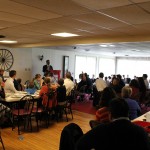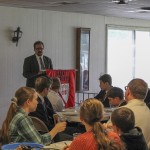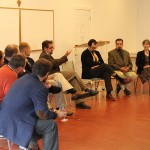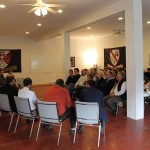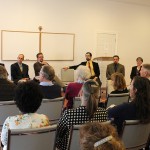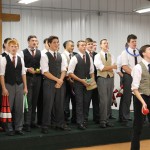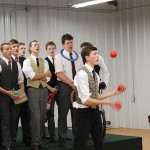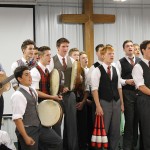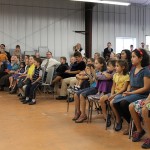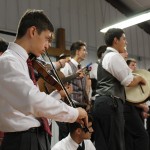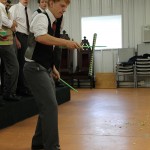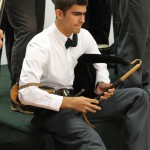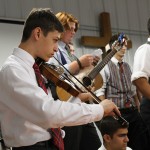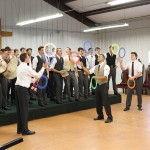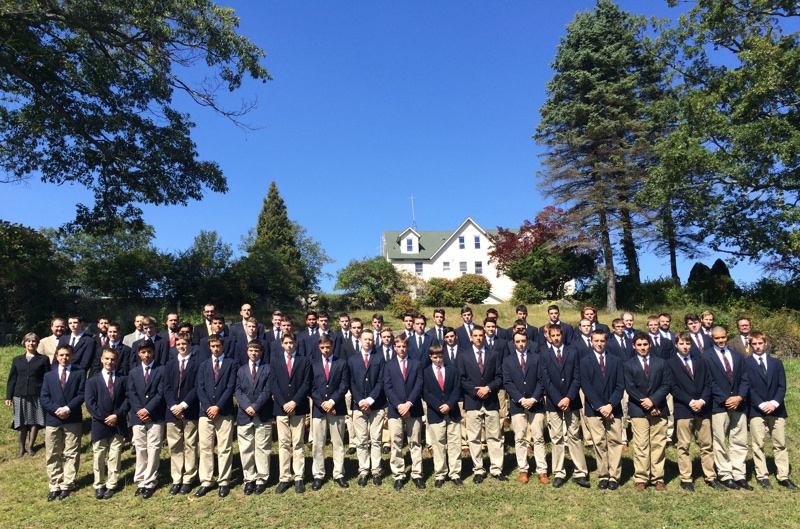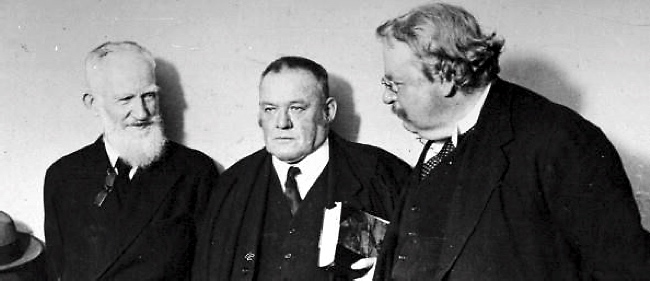
The teachers at Gregory the Great Academy are a group of friends. That may sound very quaint, but this statement reveals something deeper than just nice feelings. It is a statement that drives at something essential, something that lies at the very origin of our school. In many ways, Gregory the Great Academy is a realization of the ideas and pedagogy of Dr. John Senior. In an unpublished work titled The Restoration of Innocence: An Idea of a School, Dr. Senior writes:
The essence of a school is its faculty. In a society like ours, whose older generation keeps some oligarchic memories, most think first of buildings, principals, students and then of “staff” (teachers as the work force). But schools (as in “schools of thought”) are groups of friends at leisure, apart from business, given over to the free exercise of their animal rationality, that is, a “faculty,” an enabled organ free from any purpose but its own exercise.
The faculty at Gregory the Great Academy takes this vision of a school to heart. The most important aspect of a school is not a building, a curriculum, or even the students. The essence of a school—that indispensable aspect that determines its character—is the teachers. The teachers at Gregory the Great Academy are a group of friends. We have worked together for years. Some of us have formally taught our fellows. Some of us even grew up together. This friendship among the faculty is not merely the makings of a pleasant work environment. As Senior says, the very essence of a school is this group of friends, friends who teach each other, friends who learn from one another. Schools that lack this principle, lack an essence, and therefore lack an ultimate end. In The Restoration of Christian Culture, Senior writes:
Education today simply has no finish line. A College or University is a collection of studies leading to several certifications but there isn’t any final cause of the institution as a whole. Like the nation itself, colleges and universities are propelled by the demands of the marketplace, pushed around by ideological pressure groups, and limited by inertia; they have no definition.
The idea that the teacher is somehow secondary to the curriculum is backwards. Recent trends in education treat teachers like easily replaceable workers on an assembly line. But the formal cause, or essence, of a school is the faculty. Teaching should be a labor of love, but like any labor of love, it will not be forced and it will absolutely not be manufactured and pre-packaged. Love exists in people and it must be communicated through people if it is to be communicated at all. The best systems and programs in the world will fail to be productive of a real education simply because people, unlike computers, are not programmable.
A faculty ought to teach not only the students, but also, as true friends naturally do, each other. A faculty should be friends who together discuss and ponder truths great and small. The teachers at Gregory the Great Academy are all here because they want to be: they want to learn from each other, to teach each other, and also to share their knowledge with their students in the diffusive spirit of friendship. But no one is able to share with another that which they do not themselves possess. Academic conversations outside of class and discussion groups are a regular occurrence. Such experiences do not describe the periphery of a school, they determine and form a culture and essentially shape the very institution. These friendships and conversations exist at Gregory the Great Academy and speak to what it is at its core.
